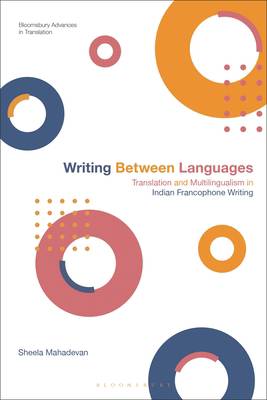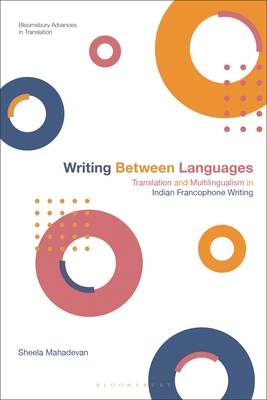
- Retrait gratuit dans votre magasin Club
- 7.000.000 titres dans notre catalogue
- Payer en toute sécurité
- Toujours un magasin près de chez vous
- Retrait gratuit dans votre magasin Club
- 7.000.0000 titres dans notre catalogue
- Payer en toute sécurité
- Toujours un magasin près de chez vous
Writing Between Languages
Translation and Multilingualism in Indian Francophone Writing
Sheela Mahadevan
220,45 €
+ 440 points
Description
This open-access book casts light on an understudied corpus of Indian Francophone literatures by writers originally from former French territories of India and from other regions of India, who also engage in processes of translation: Ari Gautier (Pondicherry), M. Mukundan (Mahé), Manohar Rai Sardessai (Goa), Toru Dutt (Calcutta) and Shumona Sinha (Calcutta).
By examining the range of ways in which these writers write between languages, Sheela Mahadevan advances theories of translation and literary multilingualism. Moreover, the book demonstrates how the self-reflective process of translating Indian Francophone writing into English can be employed as a theoretical tool that unlocks fresh ways of conceptualizing literary multilingualism and translation. Applying this methodology, the author explores the ways in which the linguistic framework and region of the readership of a text can determine the visibility and effects of literary multilingualism, and demonstrates how a text may consequently be interpreted as simultaneously monolingual and multilingual. The book thereby also intervenes in debates about translation as research in Translation Studies.
Ultimately, the book offers a more nuanced and alternative vision and understanding of the Indian literary landscape by exploring not only how and why Indian Francophone writers adopt French in their writing, but also by demonstrating how certain regional literary traditions of India have been significantly shaped by French literatures owing to processes of translation undertaken by these writers. The author also advances existing research on Indian translation traditions, including the concept of 'transcreation' and the meaning of 'originality' in the Indian context. Through the lens of Indian Francophone writing, the book explores the various factors which trigger the fluidity of boundaries between translation and creative writing that is commonplace in the Indian context.
The ebook editions of this book are available open access under a CC BY-NC-ND 4.0 licence on bloomsburycollections.com. Open access was funded by UKRI.
By examining the range of ways in which these writers write between languages, Sheela Mahadevan advances theories of translation and literary multilingualism. Moreover, the book demonstrates how the self-reflective process of translating Indian Francophone writing into English can be employed as a theoretical tool that unlocks fresh ways of conceptualizing literary multilingualism and translation. Applying this methodology, the author explores the ways in which the linguistic framework and region of the readership of a text can determine the visibility and effects of literary multilingualism, and demonstrates how a text may consequently be interpreted as simultaneously monolingual and multilingual. The book thereby also intervenes in debates about translation as research in Translation Studies.
Ultimately, the book offers a more nuanced and alternative vision and understanding of the Indian literary landscape by exploring not only how and why Indian Francophone writers adopt French in their writing, but also by demonstrating how certain regional literary traditions of India have been significantly shaped by French literatures owing to processes of translation undertaken by these writers. The author also advances existing research on Indian translation traditions, including the concept of 'transcreation' and the meaning of 'originality' in the Indian context. Through the lens of Indian Francophone writing, the book explores the various factors which trigger the fluidity of boundaries between translation and creative writing that is commonplace in the Indian context.
The ebook editions of this book are available open access under a CC BY-NC-ND 4.0 licence on bloomsburycollections.com. Open access was funded by UKRI.
Spécifications
Parties prenantes
- Auteur(s) :
- Editeur:
Contenu
- Nombre de pages :
- 224
- Langue:
- Anglais
- Collection :
Caractéristiques
- EAN:
- 9781350469440
- Date de parution :
- 21-08-25
- Format:
- Livre relié
- Format numérique:
- Genaaid
- Dimensions :
- 156 mm x 234 mm
- Poids :
- 485 g

Les avis
Nous publions uniquement les avis qui respectent les conditions requises. Consultez nos conditions pour les avis.






